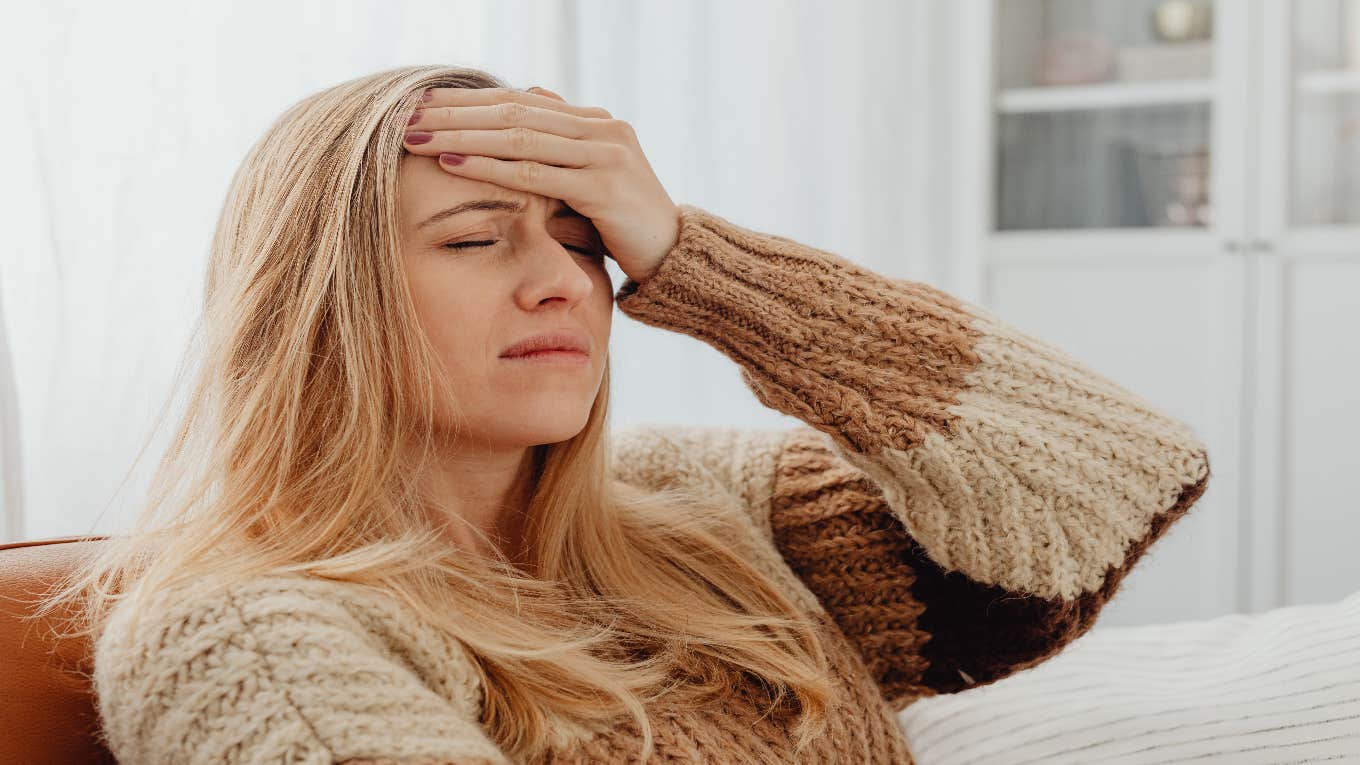4 Reasons People Experience 'Hangxiety'
Waking up with a hangover is never fun. Waking up with 'hangxiety' is brutal.
 Karolina Grabowska / Pexels
Karolina Grabowska / Pexels You go out and have a fun night, filling yourself with drinks and laughter. Everything is fine and you've never felt better. However, when the next day approaches, you find yourself feeling extremely anxious. What happened?
The American Addiction Center says that the anxious feeling you get after a night of drinking is referred to as 'hangxiety.' A psychology lecturer at the University of Bristol, Craig Gunn, writes that hangxiety affects 12% of people. But, why is this?
Anxiety therapist Joshua Fletcher explains the four main reasons we experience hangxiety and how it affects us.
4 Reasons People Experience Hangxiety
1. Neurotransmitters
Two neurotransmitters are affected when we drink alcohol," says Fletcher. When we first drink alcohol, the GABA in our system increases. This causes us to feel calm and relaxed.
When that begins to wear off, the glutamate in our bodies increases. "Known as the excitatory neurotransmitter, it increases the energy in our body," says Fletcher.
Though this doesn't sound too bad, when we wake up in the morning this extra spike can cause us to feel anxious.
"When we feel hangxiety, it's our brain's way of trying to re-balance itself," says Fletcher.
2. Dehydration
Ever wonder why drinking alcohol affects our brains? Well, our brain is 75% water according to a postdoctoral research fellow from Deakin University Nikolaj Travica.
When we are dehydrated this causes our brain structure to change. This change then decreases our energy production.
"If this happens our body begins to go into anxiety mode, causing a decrease in serotonin production," writes Travica.
Fletcher says that dehydration also causes a decrease in our electrolytes. According to Travica, a study conducted showed that electrolytes may affect managing anxiety.
However, it's crucial to note that there are defects in this study. Because participants knew that there were electrolytes in their water, a placebo effect could've taken place.
Regardless, studies have consistently shown how harmful dehydration is to our mental health. Travica notes that one study showed five or more cups a day decreases both depression and anxiety.
Another study showed those who decreased their water intake, felt more tension and less contentment.
3. Lack of sleep
Alcohol consumption impacts our REM sleep. According to sleep medicine physician Dr. Abhinav Singh, "When we consume alcohol it subdues our REM sleep during the first two cycles."
As the night progresses, it creates an imbalance between our slow-wave sleep and REM sleep. Which is why our quality of sleep suffers after a night of drinking.
Even consuming low amounts of alcohol influences our quality of sleep. Dr. Singh writes that low amounts of alcohol decreased sleep quality by 9.3%. High alcohol consumption decreased sleep quality by 39.2%.
And low sleep quality impacts our mental well-being in different ways. Noticeably, it can cause depression, anxiety, and even sleep ideation.
4. Anxiety disorders
"Having anxiety can make you prone to hangxiety," says Fletcher. And being hungover often mimics the symptoms of anxiety.
When our heart begins to beat loudly and we feel drained, it reminds our bodies of our anxiety.
"Alcohol consumption increases our cortisol levels and blood pressure, which happens when experience anxiety," writes Gunn. This is another reason why your body goes into panic mode.
Gunn also notes, “Hangaxiety has even been reported to be higher in people who say they’re very shy and may be linked to symptoms of alcohol use disorder.”
If you or someone you know experiences hangxiety, Gunn advises planning the night before. Incorporate self-care and meditation into your routine. Ensure you have plenty of time to recover the next day.
You don’t need to abstain from alcohol entirely because of hangxiety. Just be moderate in your alcohol consumption.
Marielisa Reyes is a writer with a bachelor's degree in psychology who covers self-help, relationships, career, and family topics.

